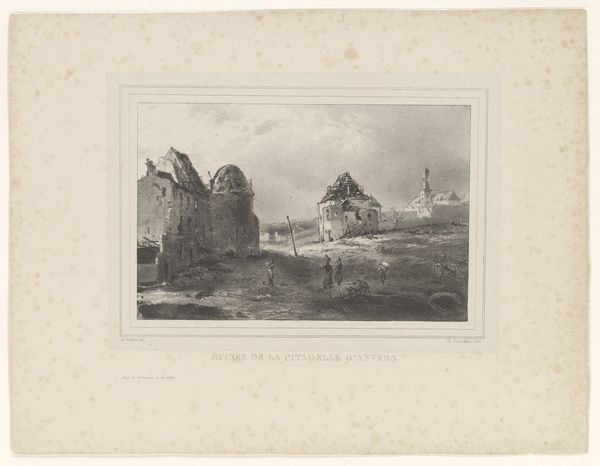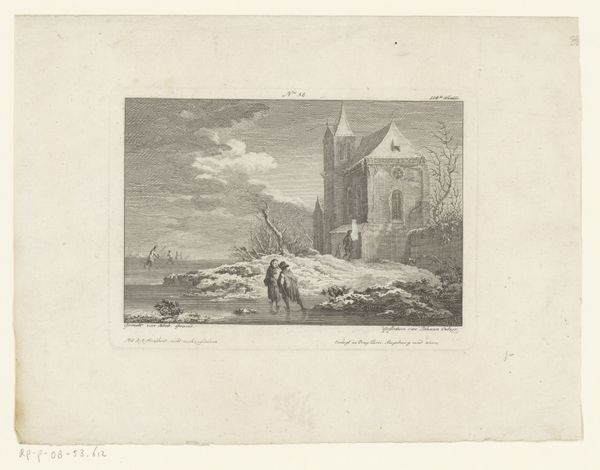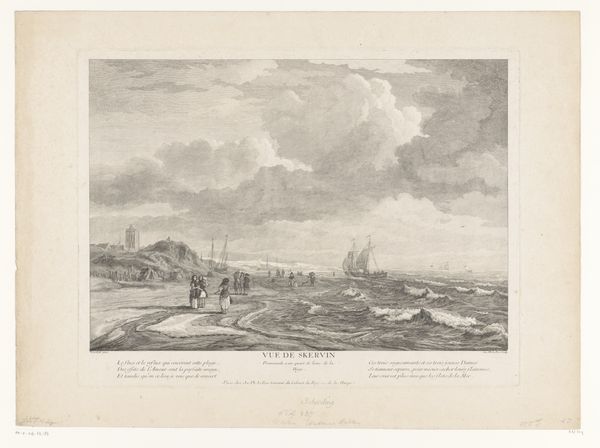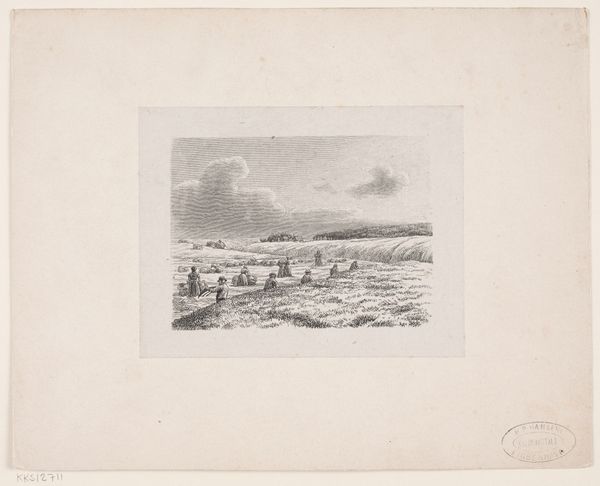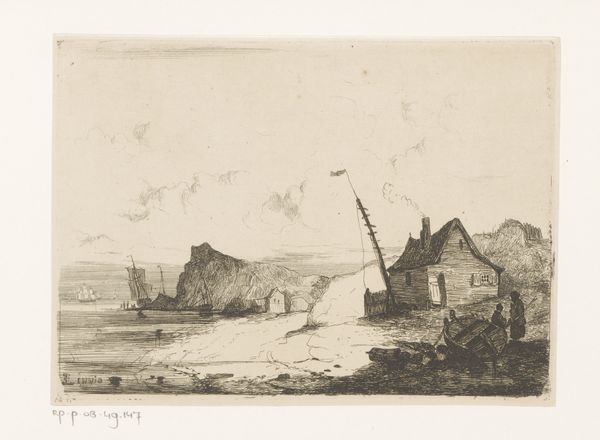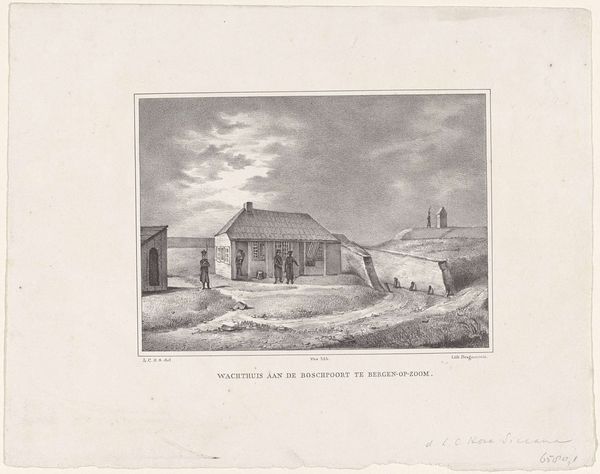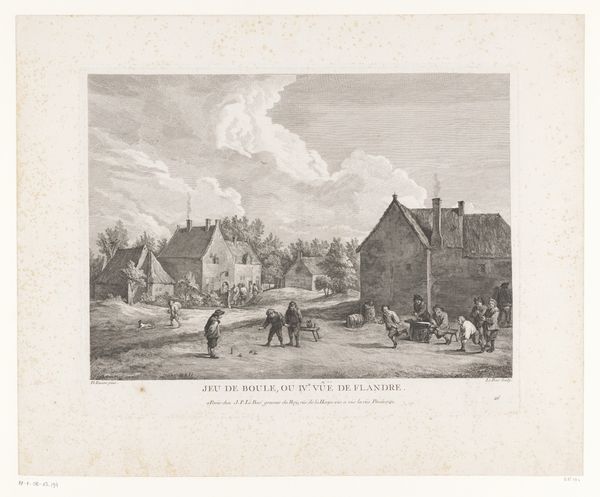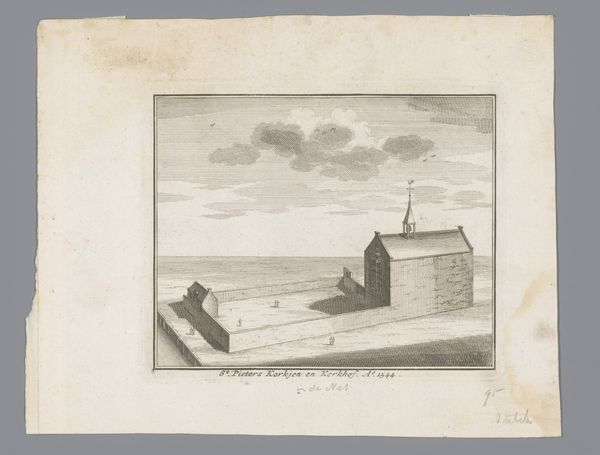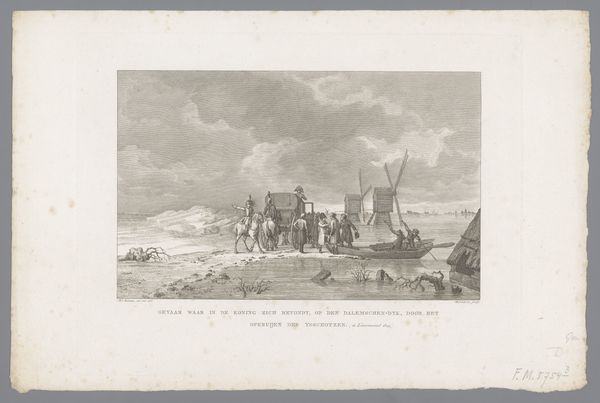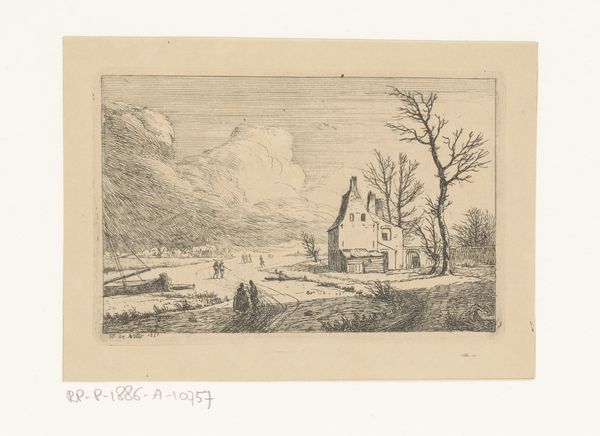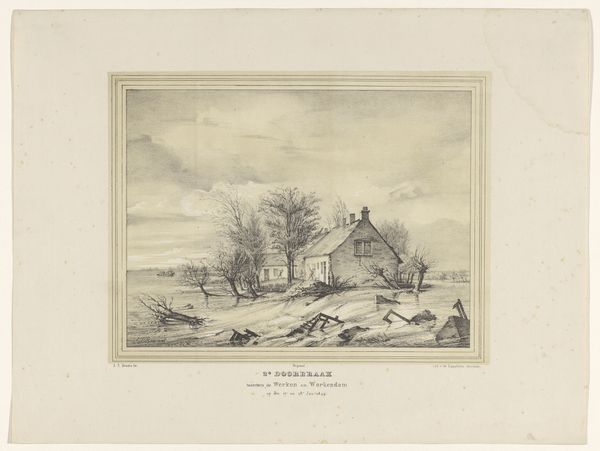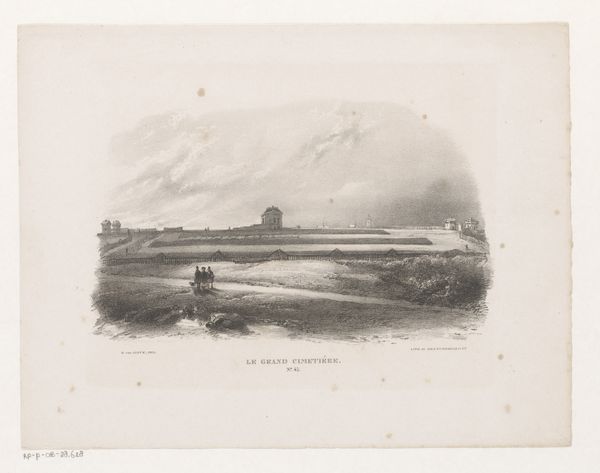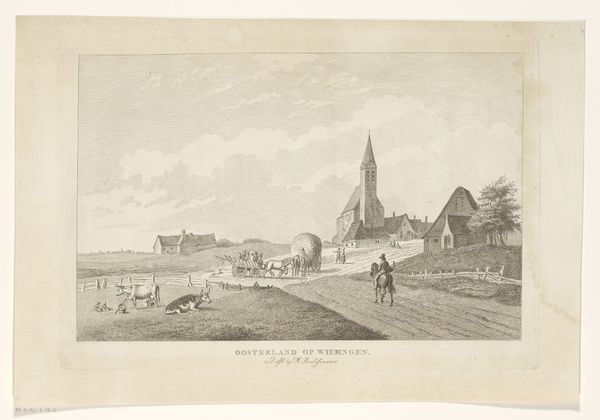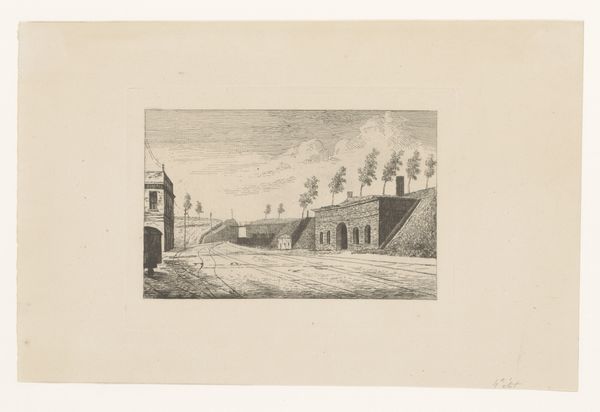
print, etching
#
neoclacissism
# print
#
etching
#
old engraving style
#
landscape
#
cityscape
#
genre-painting
Dimensions: height 282 mm, width 413 mm
Copyright: Rijks Museum: Open Domain
Theodorus de Roode made this etching of Stroe Village in Wieringen around 1772, a time when printmaking was crucial for circulating images. Consider the etching process itself: a metal plate is coated with a waxy ground, into which the artist scratches a design. When acid is applied, it bites into the exposed metal, creating lines. The plate is then inked, and the surface wiped clean, leaving ink only in the etched lines. When pressed onto paper, an image is born. Look at the sky. Those fine, closely-worked lines create dramatic storm clouds. De Roode skillfully uses the etching technique to suggest light, shadow, and atmospheric perspective. Printmaking like this was an artisanal process, one that required patience, skill, and physical labor. The resulting prints democratized art, making images accessible to a broad public. This etching is not just a picture; it's a testament to the power of reproducible media.
Comments
No comments
Be the first to comment and join the conversation on the ultimate creative platform.
